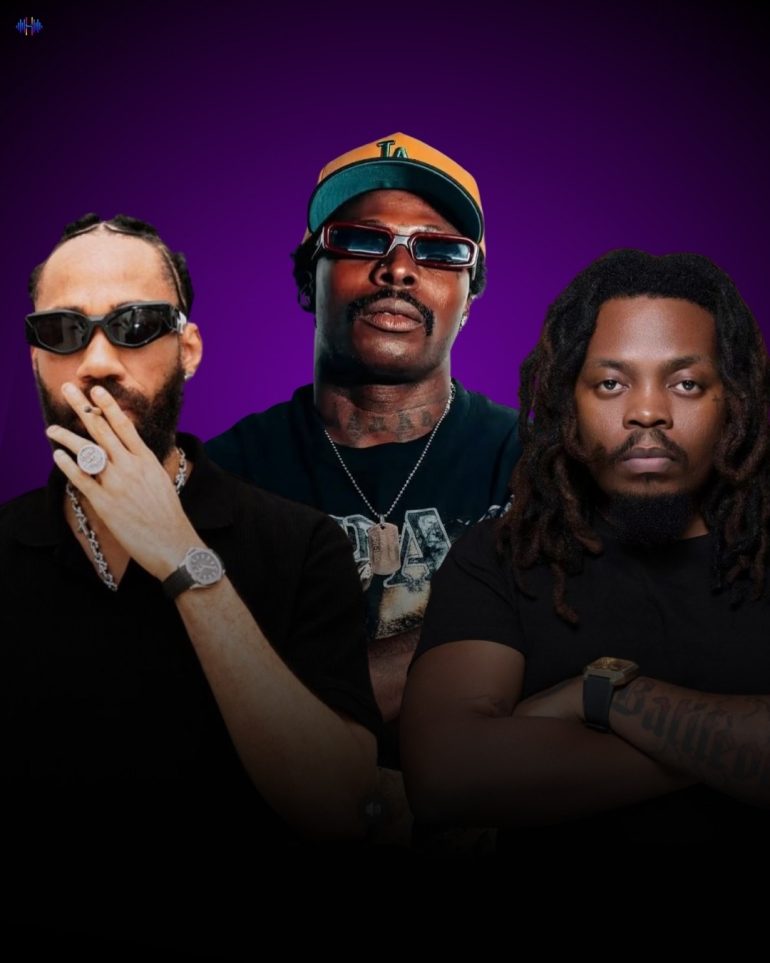Afrobeats has become the soundtrack of a generation, a genre that has taken Nigeria’s local rhythms and turned them into a global export. Yet at the core of this movement lies a remarkable truth: some of its biggest stars achieved global acclaim not by abandoning their native languages, but by doubling down on them.
For Olamide, Phyno, and Asake, Yoruba and Igbo aren’t just means of communication, they are instruments, rhythms, and cultural signatures that have turned their music into something irresistible. Their stories show that the indigenous voice of Nigeria isn’t just alive, it’s thriving on the world stage.
Olamide: The Street King Who Made Yoruba Cool
Walk through Lagos on a Friday night and you’ll hear Olamide everywhere, booming from roadside speakers, rattling keke napep radios, and blasting from car stereos stuck in traffic. For over a decade, Olamide has been the heartbeat of the streets, an artist whose Yoruba-heavy hits connect with the masses in ways few others can.
When Wo!! dropped in 2017, it wasn’t just a song, it was a cultural moment. In markets and university hostels, fans screamed along to its Yoruba lines, while its viral dance took over clubs across Africa. Even in London and Houston, Nigerian diaspora crowds would erupt the moment the beat dropped.
What makes Olamide legendary is his refusal to dilute his artistry. His lyrics, laced with Yoruba slang and metaphors, speak directly to everyday Nigerians, yet somehow resonate globally. From Durosoke to Bobo, he proved that Yoruba rap can command international arenas. With his latest project “olamide” crossing 100 million streams, Olamide isn’t just an artist, he’s a cultural anchor.
Phyno: Igbo Rap General
If Olamide held down Yoruba, Phyno carried Igbo like a badge of honor. When he first emerged, many industry insiders doubted whether an Igbo rapper could break through nationally, let alone internationally. But Phyno had other ideas.
His breakout hit Alobam became an anthem in 2014, and suddenly, Igbo rap was everywhere. Fans who didn’t speak a word of Igbo rapped along phonetically, drawn to the energy and cadence of his delivery. Later, Fada Fada, his collaboration with Olamide, became a pan-Nigerian anthem, proving that language diversity was a strength, not a limitation.
On stage, Phyno embodies his language. At concerts from Enugu to London, he commands crowds with verses entirely in Igbo, and the audience roars back, word for word. His success gave a generation of Igbo rappers permission to stay true to themselves, and it reshaped the balance of Afrobeats.
Asake: The New Face of Yoruba Musical Fusion
In 2022, a new energy hit Afrobeats, and his name was Asake. Bursting onto the scene with Omo Ope and later the viral smash Sungba, Asake immediately stood out for his fearless use of Yoruba, his Fuji-inspired vocal style, and his ability to blend street sounds with global trends.
Asake doesn’t just sing in Yoruba; he builds entire sonic landscapes around it. His choruses are chants, his verses are proverbs, and his melodies echo traditional call-and-response from Yoruba culture. Yet the production; fast-paced, bass-heavy, and laced with amapiano, pushes it into futuristic territory.
At his O2 Arena show in London, thousands of fans sang back Yoruba lines they barely understood, word for word. That moment captured the magic of Asake: he made indigenous language not just palatable, but fashionable, trendy, and global. Safe to say that the torch that was passed down from Olamide to Asake was one of the best decisions ever made in the history of afrobeats.
Why Their Indigenous Sound Works
What Olamide, Phyno, and Asake share is a refusal to compromise their roots. Yoruba and Igbo aren’t just languages in their music, they’re sonic identities. Their use of indigenous tongues carries three powerful effects:
- Authenticity: Their songs feel real, grounded in the life and humor of Nigerian streets.
- Universality through Vibe: Even without translation, global listeners catch the emotion and rhythm.
- Cultural Pride: They remind Nigerians at home and abroad that local identity is not something to hide, it is in fact something to celebrate.
The Legacy of Indigenous Stars
Together, Olamide, Phyno, and Asake have redrawn the map of Afrobeats. They proved that superstardom can be achieved without abandoning your mother tongue. Yoruba and Igbo, once seen as regional limits, are now global rallying cries.
From Lagos to London, Enugu to New York, their music pulses through speakers, bringing with it not just beats, but language, identity, and cultural pride. They have shown the world that Nigeria’s indigenous voices aren’t just surviving in Afrobeats, they are leading it. With the rise of new indigenous stars like Jeriq, Shoday, Fola and Oluwamillar. It is clear that the legacy of these greats will be carried on from generation to generation—as it’s now seen as an integral part of our music and culture.
✨ In the end, these superstars didn’t just use Yoruba and Igbo to make hits, they turned them into the rhythm of a global movement.


